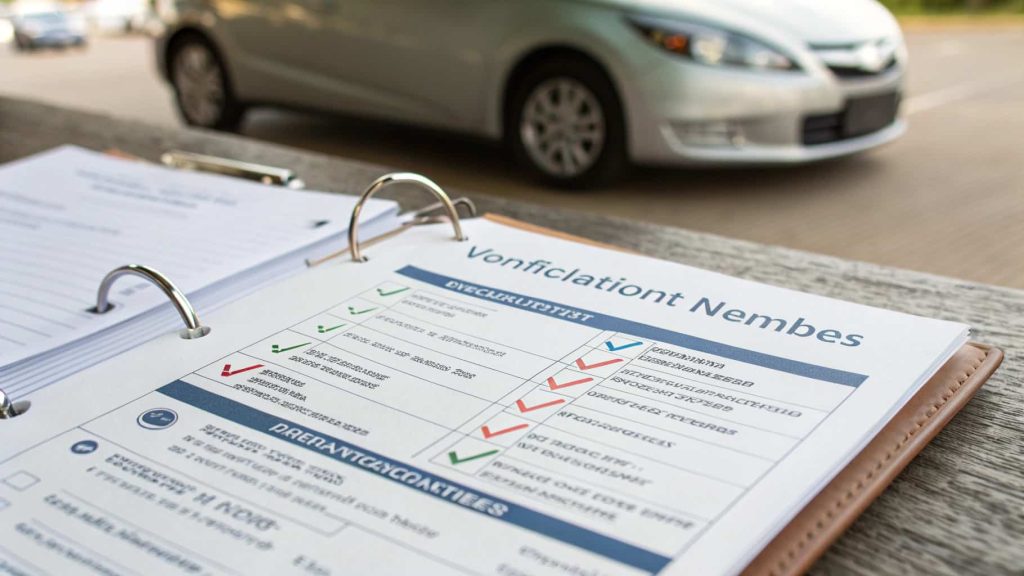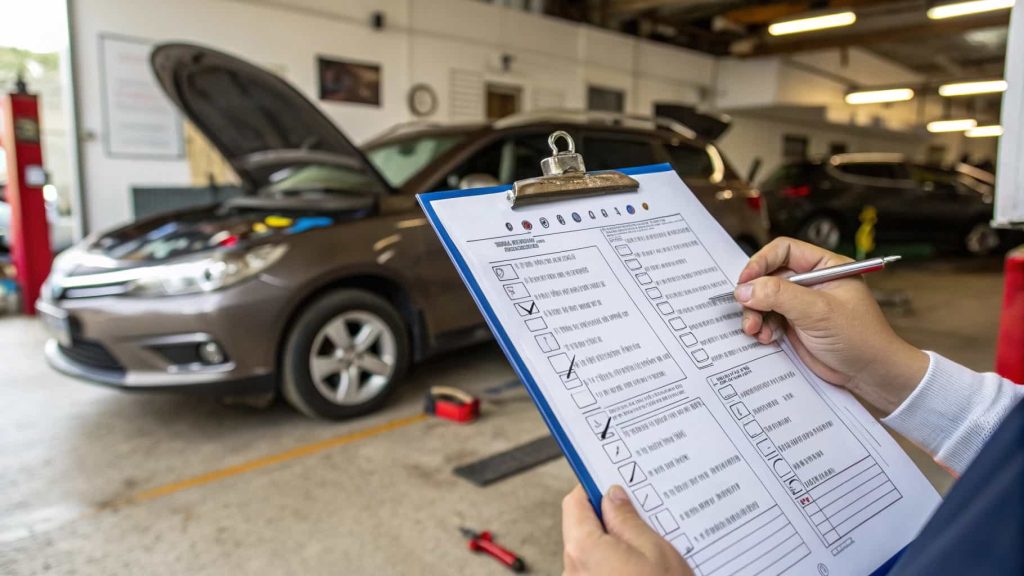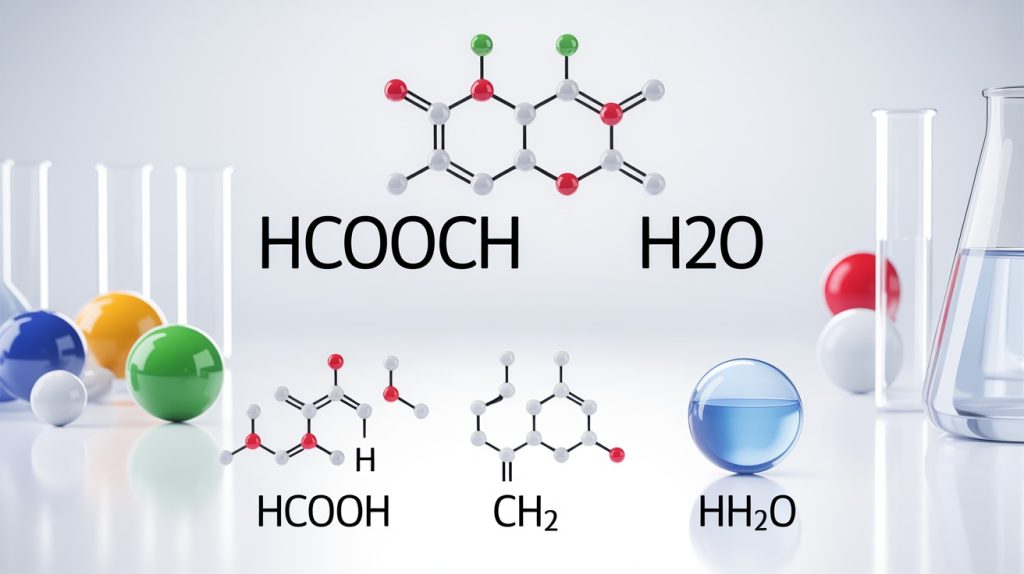When it comes to buying a used car, knowledge is power,and nothing gives you more insight than a detailed Carfax report. If you’re searching for 4t1bk3db4bu385179 Carfax, chances are you’re looking to understand the full history of this specific vehicle before making a commitment. Most likely, this VIN belongs to a 2011 Toyota Avalon, and your goal is to ensure you’re buying a reliable car rather than inheriting someone else’s problem. Knowing the car’s past can save you from costly repairs and unexpected surprises down the road.
A Carfax report helps you see accidents, repairs, and maintenance that the seller might not mention. It also shows ownership history and mileage trends, which tell a lot about how the car was treated. With this information, you can make smarter decisions and feel confident about the investment you’re making. Finally, understanding the vehicle’s full story puts you in a stronger position to negotiate a fair price.
What Is A Carfax Report And Why It Matters?
Before diving into the specifics of 4t1bk3db4bu385179 Carfax, let’s clarify what a Carfax report is and why it’s essential:

- Comprehensive Vehicle History: Carfax aggregates information from DMVs, insurance companies, repair shops, and law enforcement databases across North America.
- Transparency: It provides insights into accidents, title issues, odometer readings, and service history.
- Decision-Making Tool: A Carfax report is your first defense against buying a vehicle with hidden problems. Think of it as the background check for your potential investment.
For a buyer, ignoring Carfax can lead to unforeseen repair costs, safety hazards, and devalued resale potential.
How Do I Decode the VIN 4T1BK3DB4BU385179?
The Vehicle Identification Number (VIN) is like a car’s DNA. Every digit and letter carries specific information. Let’s break down 4T1BK3DB4BU385179:
| VIN Segment | Meaning |
|---|---|
| 4T1 | Manufacturer: Toyota, USA-built |
| BK3DB | Model & trim: Avalon, high-level features |
| 4 | Restraint system & safety code |
| B | Check digit (validates VIN) |
| U | Model year: 2011 |
| 3 | Assembly plant: Georgetown, Kentucky |
| 85179 | Unique serial number |
From this, you can infer that this VIN likely corresponds to a 2011 Toyota Avalon, assembled in Kentucky, potentially a higher-trim model.
What Should You Look for in 4T1BK3DB4BU385179 Carfax Report?
Once you access the Carfax report for 4t1bk3db4bu385179, there are several critical areas to examine:
Accident and Damage History:
- Minor Accidents: Even small collisions can affect structural integrity and long-term durability.
- Major Accidents: Frame damage or deployed airbags can signal expensive repairs.
- Hidden Repairs: Ensure all repairs are documented to avoid untraceable problems.
Pro Tip: Don’t just look for the word “accident.” Pay attention to any damage repairs or insurance claims that may indicate prior issues.
Ownership History:
- Single Owner vs Multiple Owners: Fewer owners usually indicate better care.
- Personal vs Commercial Use: Cars used for commercial purposes may experience heavier wear.
- Duration of Ownership: Long-term ownership is often a sign of consistent maintenance.
A 2011 Avalon with a single owner over a decade tends to be more desirable than one with multiple owners in a short period.
Title Verification:
Car titles reveal legal and financial status. The report will indicate:
- Clean Title: No issues; safe for resale.
- Salvage Title: Vehicle declared a total loss by the insurer.
- Rebuilt Title: Previously salvaged, now repaired and road-legal.
- Flood or Fire Damage: High-risk repairs, potentially hidden long-term issues.
Even if the seller claims “all clear,” Carfax verifies it for you. A problematic title can drastically reduce resale value and pose legal risks.
Odometer History:
- Check for Rollbacks: If mileage decreases over time, it’s a red flag.
- Consistency Matters: Regular mileage progression signals honesty and proper use.
Example:
If the car shows 80,000 miles in 2019 but 65,000 miles in 2021, you’re dealing with an odometer rollback—a serious warning.
Maintenance and Service Records:
- Recorded Services: Oil changes, brake service, timing belt replacements.
- Mechanic vs DIY Repairs: Professional documentation strengthens the car’s reliability profile.
- Missing Records: Lack of records doesn’t guarantee neglect, but it increases risk.
A well-maintained Avalon could easily reach 300,000 miles, so documented maintenance is a key indicator of longevity.
How To Interpret A Clean Carfax?
Even if a Carfax report looks perfect, it doesn’t mean the car is flawless. Some issues may not show up on the report, and relying solely on it can be risky. It’s always best to combine the report with your own inspection and common sense to get the full picture of the car’s condition.

- Unreported Repairs: DIY fixes or minor insurance-free repairs may be missing.
- Recall Notices: Carfax doesn’t always reflect manufacturer recalls; check NHTSA.
- Mechanical Condition: Only a physical inspection or mechanic evaluation confirms the car’s true state.
- Pending Maintenance: A clean Carfax might still hide overdue services like brake replacement or timing belt changes, which can cost you later.
- Previous Usage: Even with no accidents, heavy use like long commutes or highway driving can cause wear not recorded in the report.
- Insight: Use Carfax as a tool, not the ultimate authority. Combine it with a thorough physical inspection.
Why Buyers Search for 4T1BK3DB4BU385179 Carfax?
People often search for a specific VIN like 4t1bk3db4bu385179 Carfax to get the full story before making a purchase. Checking the Carfax helps buyers avoid costly mistakes by confirming the car’s history, including accidents, ownership changes, and title status. It also gives them leverage to negotiate a fair price, especially if the report shows minor incidents or gaps in maintenance. Many buyers use it to verify seller claims about mileage, condition, or past use, and to ensure the vehicle isn’t flagged for theft or subject to recalls.
Essentially, reviewing a VIN’s Carfax gives peace of mind, helps prevent surprises down the road, allows for smarter financial decisions, and ensures the car is a safe and reliable choice for daily use or long-term ownership.
How To Obtain The Carfax Report Without Overspending?
Carfax reports often come at a cost, but there are cost-effective ways:
- Ask the Seller: Legitimate sellers often provide free Carfax reports.
- Dealerships: Many dealerships include a complimentary Carfax for used cars.
- Third-Party VIN Checkers: NHTSA.gov, iSeeCars, and VehicleHistory.com provide free or limited information.
- AutoCheck: Offers a cheaper alternative with similar insights.
Tip: Always verify the report’s authenticity; avoid generic PDFs from questionable sources.
How Should You Evaluate the 2011 Toyota Avalon With This VIN?
Assuming the 4T1BK3DB4BU385179 is a 2011 Avalon, a typical evaluation can reveal useful insights about its condition and value. Buyers usually look at mileage, engine performance, market price, and overall comfort. A 2011 Avalon often has a mileage range between 100,000 and 150,000 miles, with a reliable 3.5L V6 engine producing 268 horsepower. Prices generally range from $7,000 to $11,000 depending on condition and location.
This model is known for long-distance comfort and engine durability, making it a solid choice for daily driving. However, a low asking price can be tempting but should never outweigh potential warning signs in the Carfax or issues found during inspection. It’s important to combine the Carfax information with a physical check to make a confident, informed decision.
What Seller Tricks Should You Watch Out For?
Some sellers may attempt to minimize or obscure the vehicle’s history. Common tactics include claiming the title is clean without providing a Carfax report, downplaying minor accidents as cosmetic issues, or overstating the accuracy of the mileage. Buyers should request the full Carfax report and cross-check the vehicle’s history to ensure all claims are truthful.
Being cautious and verifying all information is crucial to avoid paying for a vehicle that may have hidden problems or diminished value
What If The Carfax Shows A Minor Issue?
If the Carfax report for 4T1BK3DB4BU385179 indicates a minor issue, it doesn’t necessarily mean you should walk away from the vehicle. Minor issues can be manageable and sometimes even present opportunities for negotiation. Here’s how to approach it:
- Assess the Severity: Determine whether the issue is cosmetic, mechanical, or structural. Cosmetic issues like small dents or scratches have minimal impact, while mechanical repairs may require closer inspection.
- Check Repair Records: Ensure that the minor issue was repaired promptly and professionally. Documentation of repairs increases confidence in the vehicle’s condition.
- Evaluate Maintenance History: A car with a minor accident but consistent, thorough maintenance is often safer and more reliable than one with no recorded incidents but missing service records.
- Negotiate Price: Use the minor issue to your advantage when negotiating. Adjusting the price slightly to reflect the repair ensures you pay a fair value.
- Inspect in Person: Always perform a physical inspection or hire a mechanic to confirm that the minor issue has been resolved correctly and hasn’t caused further problems.
In short, a minor issue is not a deal-breaker if it’s well-documented and the vehicle is otherwise well-maintained. It can serve as a tool for informed negotiation rather than a reason to reject the car outright.
What Additional Factors Should Buyers Consider?
In addition to the Carfax report, prospective buyers should consider fuel economy, common mechanical issues associated with the Avalon, market comparisons, and resale potential. While the car may appear well-maintained, understanding typical wear patterns and industry pricing ensures that the buyer pays a fair value and anticipates potential future maintenance. Considering these factors along with the vehicle’s history allows for a more informed and balanced decision.

It’s also important to evaluate the comfort, technology features, and overall driving experience, as these can influence long-term satisfaction. Finally, understanding the availability of replacement parts and the cost of routine repairs can help avoid unexpected expenses down the road.
What Red Flags Should You Avoid?
When reviewing the 4t1bk3db4bu385179 Carfax, there are several warning signs that buyers should never ignore. Identifying these red flags early can save you from costly mistakes and ensure a safer purchase.
- Rebuilt or Salvage Titles: These indicate the car was previously declared a total loss and may have undergone extensive repairs, affecting safety and resale value.
- Flood or Fire Damage: Vehicles with water or fire damage can have hidden corrosion or electrical issues that may not be immediately visible.
- Odometer Discrepancies: Any inconsistencies or rollbacks in mileage can hide the true wear and tear of the vehicle.
- Missing Maintenance Records: A lack of documented service history makes it difficult to verify the car has been properly cared for.
- Multiple Short-Term Owners: Frequent changes in ownership could indicate unresolved issues or unreliable use history.
- Unreported Accidents: Sometimes minor accidents aren’t reported to insurance or DMV, but they may still affect the car’s performance.
Recognizing these red flags helps you avoid vehicles that could cause long-term problems, costly repairs, or legal complications. Always use these indicators alongside a physical inspection and professional mechanic evaluation for a complete assessment.
How Should You Combine Carfax With Physical Inspection?
While Carfax provides historical insight, a physical inspection is necessary to confirm the vehicle’s current condition. A mechanic can detect hidden damage, uneven wear, and potential safety concerns that may not be documented. Checking tires, brakes, suspension, body panels, and test-driving the car helps identify any issues overlooked in the Carfax report.
Combining the historical data with a thorough inspection provides a comprehensive understanding of the vehicle’s overall condition. Additionally, comparing the inspection results with the Carfax can help spot inconsistencies or hidden problems. This approach ensures that your purchase decision is backed by both verified history and real-world evidence.
How Can You Leverage 4T1BK3DB4BU385179 Carfax for Negotiation?
The Carfax report can be a powerful tool to help you negotiate a fair price for the vehicle. Using verified data from the report gives you leverage and confidence during discussions with the seller. Here’s how to approach it:
- Reference Documented Accidents: If the report shows any accidents, even minor ones, you can use this to adjust your offer to reflect potential depreciation or repair costs.
- Highlight Maintenance Gaps: Gaps in service history or delayed maintenance can justify negotiating a lower price.
- Discuss Ownership History: Multiple short-term owners may indicate higher wear and tear, giving you room to negotiate.
- Point Out Title Issues: Any history of salvage, rebuilt, or other problematic titles can be used as leverage to reduce the price.
- Leverage Mileage Concerns: If there are inconsistencies or higher-than-average mileage, this can also be part of the negotiation.
- Show Knowledge of Market Value: Combine the Carfax insights with market research to strengthen your negotiation position, ensuring the offer aligns with the car’s actual condition and history.
By using these points, you transform from a casual buyer into a data-backed negotiator, reducing risk and ensuring you pay a fair value for the 2011 Toyota Avalon associated with 4T1BK3DB4BU385179.
What Are the Benefits Of Regularly Checking VINs Like 4T1BK3DB4BU385179?
Regularly checking a VIN like 4T1BK3DB4BU385179 provides peace of mind and safeguards against unexpected issues. It helps avoid hidden costs, ensures resale safety, and provides a clear record of ownership, accidents, and maintenance. Keeping track of VIN history also ensures awareness of recalls or title changes, allowing owners or potential buyers to make informed and financially sound decisions.

Regular monitoring can also help detect fraudulent activity, such as stolen vehicles or odometer tampering. Staying proactive with VIN checks enhances long-term trust and confidence in the vehicle’s reliability and value.
FAQs:
Can I trust a clean Carfax for 4T1BK3DB4BU385179?
A clean Carfax is encouraging but doesn’t guarantee a perfect car. Certain repairs done privately or minor accidents may not be included. A thorough inspection by a mechanic is still essential. Combining Carfax with physical evaluation ensures a full picture of the vehicle’s state.
How can I get a Carfax report for 4T1BK3DB4BU385179?
You can obtain a report directly from Carfax or ask the seller for a copy. Some dealerships offer it for free as part of their used car listings. Limited free data is also available from NHTSA and other VIN checkers. Using these sources helps buyers make cost-effective decisions before purchasing.
What should I look for in the 4T1BK3DB4BU385179 Carfax report?
Focus on accident history, title status, odometer consistency, and service records. Check for multiple owners or gaps in maintenance. These factors directly impact safety, reliability, and resale value. Understanding them helps evaluate whether the vehicle is worth buying.
Can Carfax detect odometer fraud for 4T1BK3DB4BU385179?
Yes, Carfax reports mileage readings over time, helping detect rollbacks or inconsistencies. Suspicious jumps or decreases are red flags. Odometer fraud can hide the true wear of the vehicle. Verifying mileage protects buyers from unexpected maintenance costs and depreciation.
Should I still get a mechanic to inspect 4T1BK3DB4BU385179?
Absolutely. Carfax provides historical data but cannot detect current mechanical or cosmetic issues. A mechanic can uncover hidden problems like suspension wear, engine issues, or structural damage. Combining Carfax with an inspection ensures full confidence in your purchase.
Can I use Carfax to check recalls for 4T1BK3DB4BU385179?
Carfax may include some recall data, but checking the NHTSA database is more comprehensive. Ensuring all recalls are addressed protects safety and prevents future repairs. Recalls can sometimes be fixed for free at authorized dealerships. Staying proactive avoids unnecessary risks.
Conclusion:
The 4t1bk3db4bu385179 Carfax is more than a simple VIN check—it’s a roadmap to understanding the full history of a used 2011 Toyota Avalon. From accident reports to ownership records, odometer consistency, and service history, Carfax equips you with the knowledge to make informed decisions. Always combine Carfax data with physical inspections, mechanic checks, and market comparisons. Use minor issues as negotiation leverage and never overlook red flags such as salvage titles, flood damage, or odometer discrepancies.
By approaching the purchase methodically, you ensure that your investment is safe, reliable, and worth every dollar.
Also Read:

